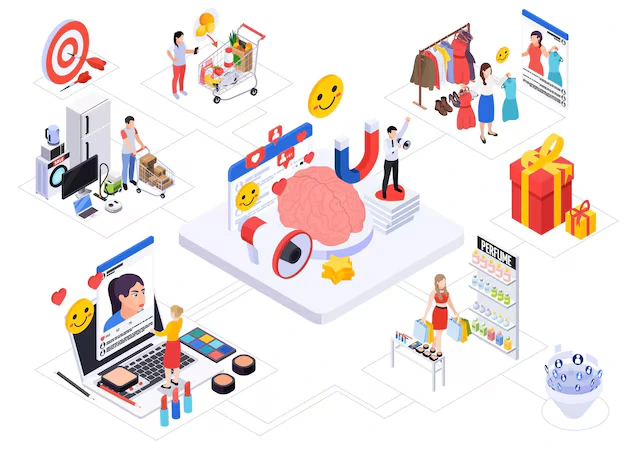Personalization has become a significant factor in shaping consumer behavior, influencing how consumers interact with brands, make purchasing decisions, and develop brand loyalty. By tailoring experiences, products, and marketing messages to individual preferences, businesses can create more meaningful connections with their customers. Below is an analysis of the impact of personalization on consumer behavior:
1. Enhanced Customer Experience
- Relevance: Personalized experiences make consumers feel understood and valued, as they are presented with products, services, or content that align with their preferences and needs.
- Convenience: Personalization reduces the effort required for consumers to find what they are looking for, improving their overall shopping experience.
- Emotional Connection: Tailored interactions foster emotional engagement, making consumers more likely to return to a brand that “gets them.”
2. Increased Purchase Intent
- Targeted Recommendations: Personalized product recommendations based on browsing history, past purchases, or preferences increase the likelihood of conversion.
- Dynamic Pricing and Offers: Personalized discounts or promotions tailored to individual behavior can incentivize purchases.
- Reduced Decision Fatigue: By curating options, personalization simplifies the decision-making process, encouraging consumers to make quicker purchases.
3. Improved Brand Loyalty
- Customer Retention: Personalized experiences make consumers feel valued, increasing the likelihood of repeat purchases and long-term loyalty.
- Exclusive Experiences: Brands that offer personalized perks (e.g., birthday discounts, tailored loyalty rewards) create a sense of exclusivity, strengthening customer relationships.
- Trust Building: Consistent personalization builds trust, as consumers perceive the brand as attentive and customer-centric.
4. Influence on Online Shopping Behavior
- Website Personalization: Dynamic website content, such as personalized landing pages or product suggestions, enhances user engagement and time spent on the site.
- Email Marketing: Personalized email campaigns with tailored subject lines, product recommendations, or abandoned cart reminders drive higher open and click-through rates.
- Social Media Ads: Personalized ads based on user behavior or demographics are more likely to resonate with consumers, increasing engagement and conversions.
5. Data Privacy Concerns
- Balancing Personalization and Privacy: While consumers appreciate personalization, they are increasingly concerned about how their data is collected and used. Brands must be transparent about data practices to maintain trust.
- Opt-In Personalization: Allowing consumers to control the level of personalization they receive can help mitigate privacy concerns.
6. Impact on Consumer Expectations
- Raising the Bar: As personalization becomes more common, consumers now expect tailored experiences from brands. Companies that fail to deliver may lose out to competitors.
- Demand for Hyper-Personalization: Consumers are increasingly seeking hyper-personalized experiences, such as AI-driven recommendations or customized products.
7. Influence on Brand Perception
- Innovation and Modernity: Brands that leverage advanced personalization technologies (e.g., AI, machine learning) are often perceived as innovative and forward-thinking.
- Customer-Centricity: Personalization demonstrates that a brand prioritizes its customers, enhancing its reputation and appeal.
8. Challenges for Businesses
- Data Management: Effective personalization requires collecting, analyzing, and leveraging large amounts of consumer data, which can be resource-intensive.
- Technology Investment: Implementing personalization strategies often requires significant investment in technology and tools.
- Cultural Sensitivity: Personalization must be culturally appropriate and avoid stereotypes or assumptions that could alienate consumers.
Personalization has a profound impact on consumer behavior, driving engagement, loyalty, and sales. However, businesses must strike a balance between delivering tailored experiences and respecting consumer privacy. As technology continues to evolve, the ability to offer meaningful personalization will remain a key differentiator for brands seeking to thrive in a competitive marketplace.

